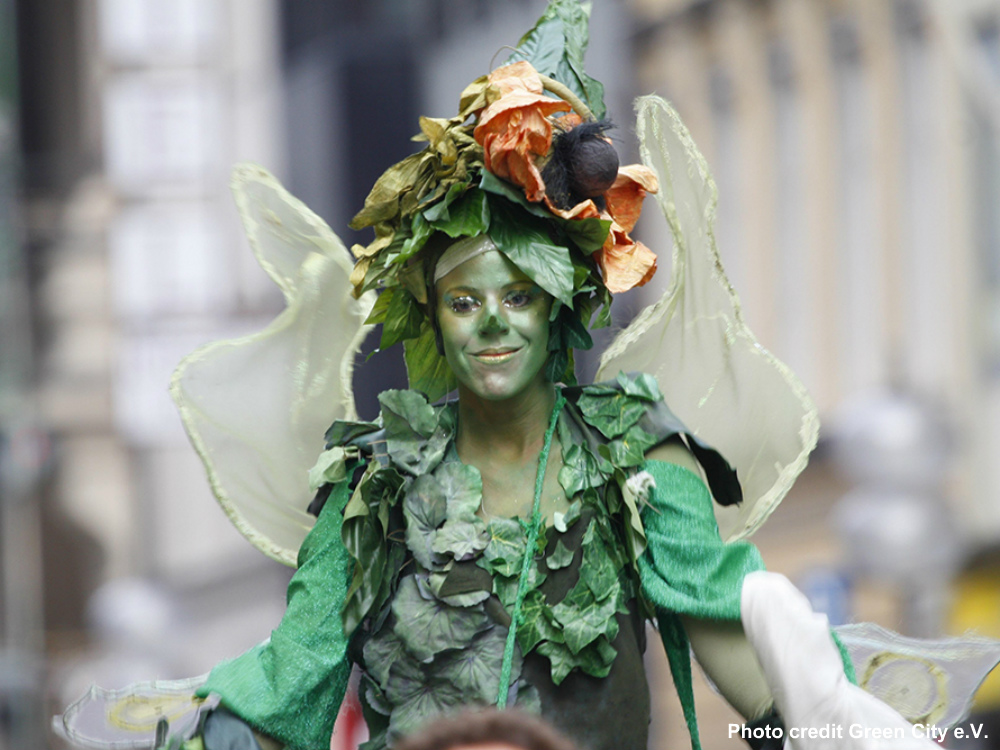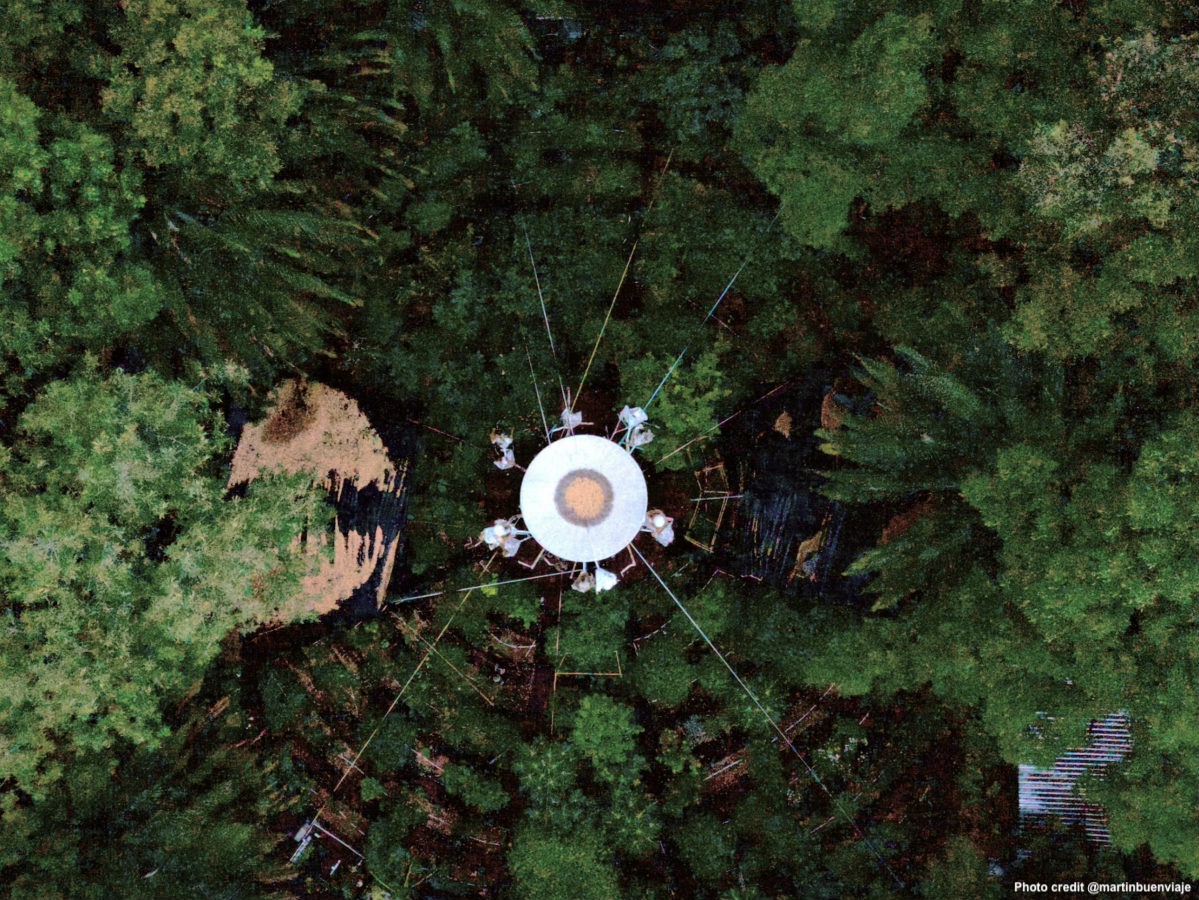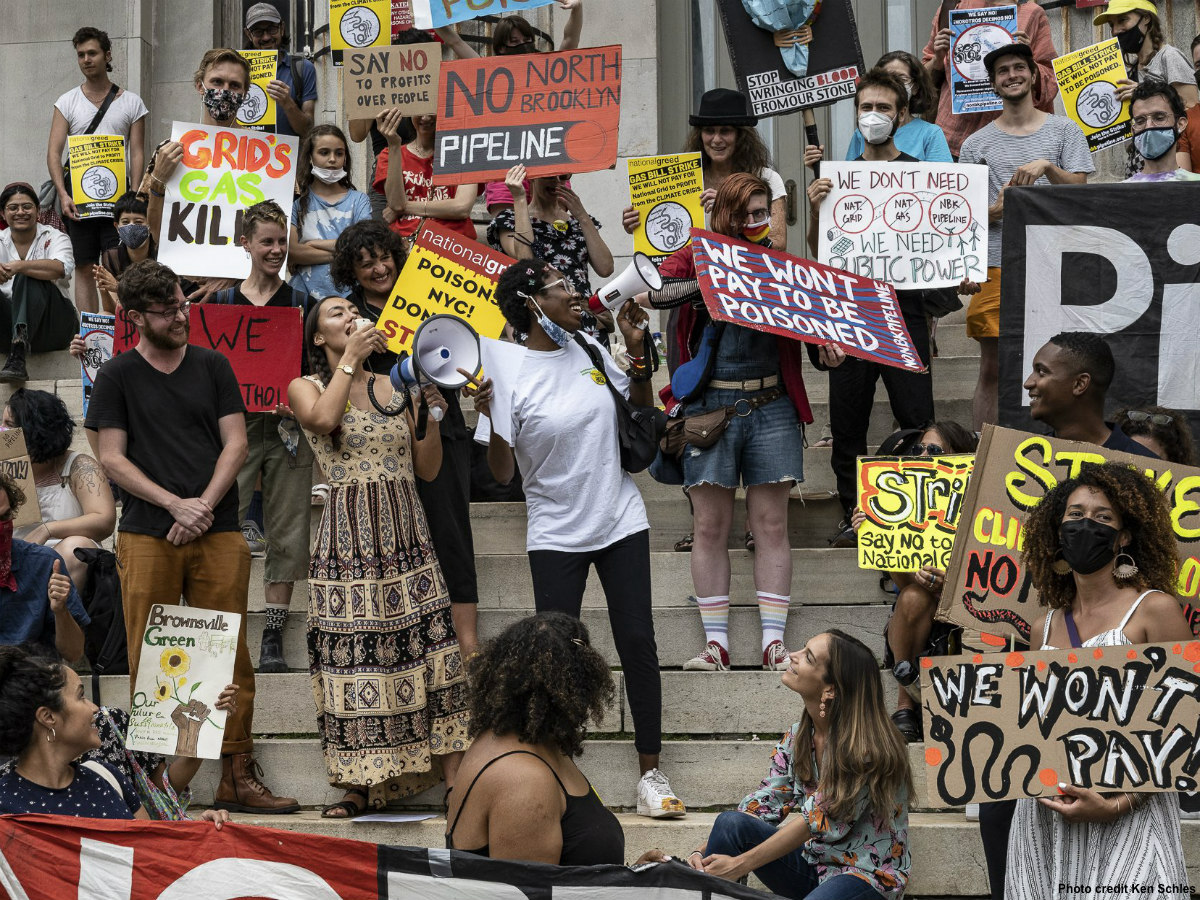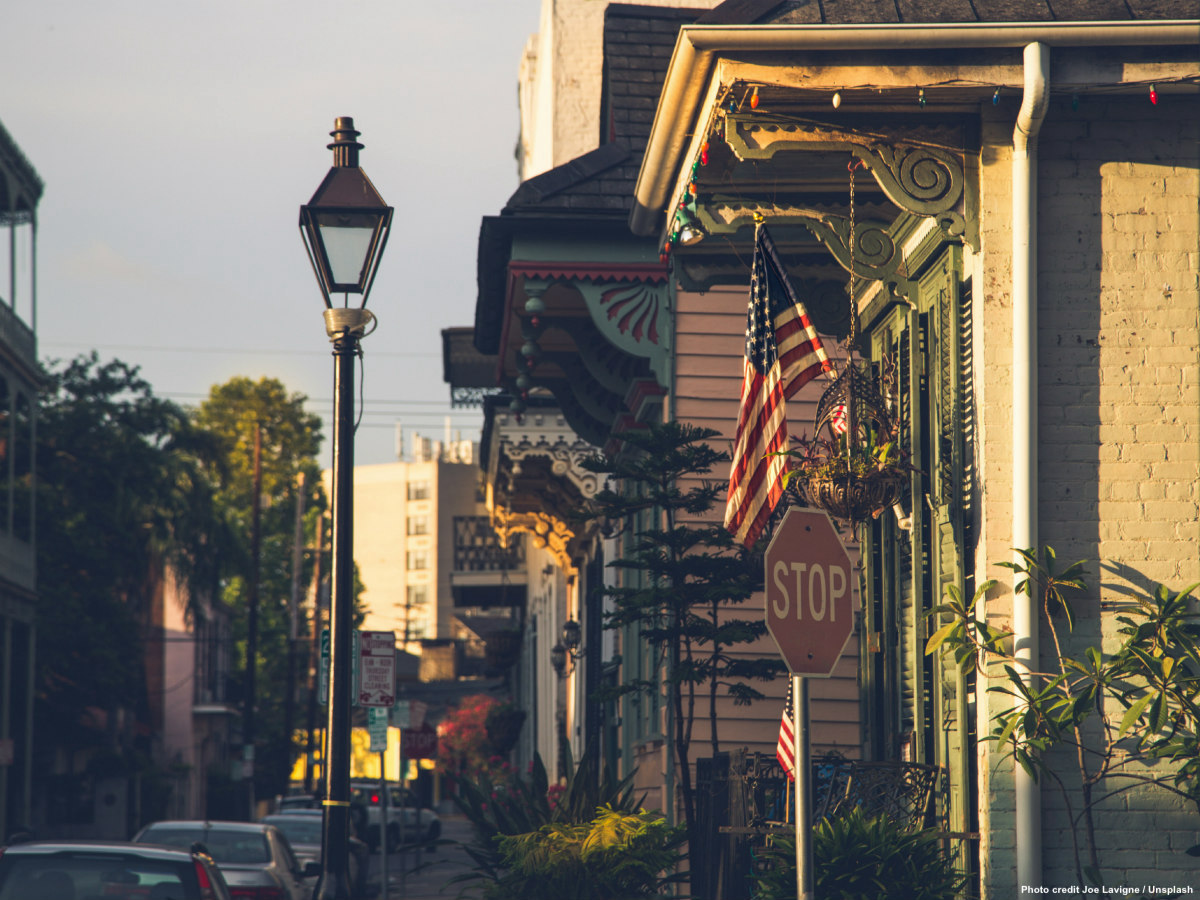In 1990 seven urban visionaries began to change Munich. They dreamt of a greener and more liveable city. To them a green city was not a utopia. Lush green oases instead of asphalt jungle. Clean air instead of smog. Public places to meet friends instead of busy intersections. Streets filled with greenery, pedestrians, bikers, skaters and playing children instead of traffic jams. After almost 30 years, their over 150 hands-on activities per year favour climate protection in Munich.
In the early days this group of active young citizens advocated to drastically reduce car traffic in Munich envisioning a car-free city under the name ‘München 2000 Autofrei e.V’. They went to the streets for the very first time to claim a green city.
Nowadays they form the non-profit organization Green City e.V with thousands of citizen members and fellow campaigners behind it. They have been all working together to make their founders’ dream come true, step by step, tree by tree.
In a city that employs more than 30.000 people in the car industry, Green City e.V. is well ahead of its time raising environmental awareness among citizens while mobilizing them with local actions.
Whether it is urban gardening, sustainable education, conscious use of resources or climate-friendly mobility, those urban actions are greening the city and improving the environmental conditions in Munich. But more over, now they have become a call to climate action.
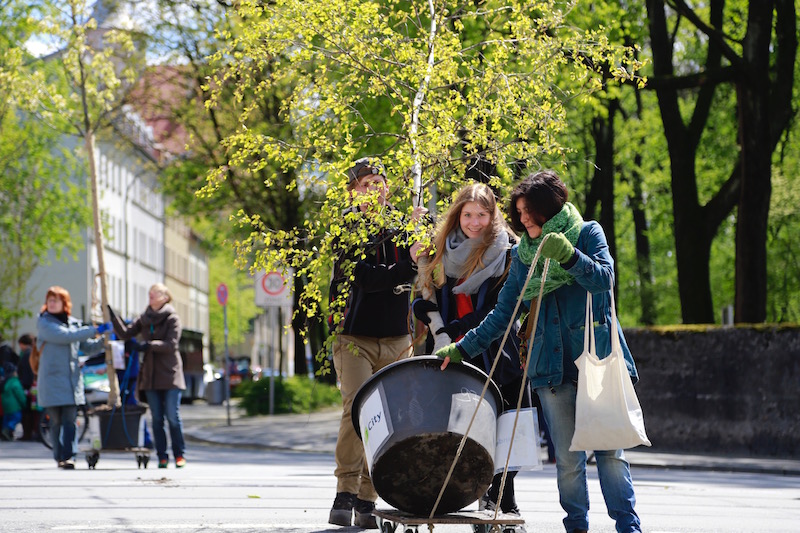
One of their first initiatives (and still on-going) is ‘Wanderbaumallee’, which consists of hiking tree parades and pop-up tree alleys aiming at reforesting the streets of Munich thanks to citizen participation. The ‘Wanderbaumallee’ has been a success with numerous temporary locations for trees as well as permanent plantings in Munich.
This local action has a significant positive impact on residents living in the centre of Munich as suddenly they see their streets embellished by greenery. Thus it has helped Green City e.V. to gain greater recognition among citizens.
The Wanderbaumallee is now part of Munich and is an indispensable part of life. It is an ideal platform for planning or participation processes encouraging citizens and local politicians to act equally.
Green City e.V. would like to see their local actions being replicated in other cites. ‘It would be great if the Wanderbaumallee will find people in other communities and cities that replicate this initiative contributing to the greening of multiple cityscapes’.
Similarly, in 2015 Marielle Anzelone, an urban ecologist living in New York, launched a kickstarter campaign called ‘Build a PopUP Forest in Times Square, NYC’ to bring a piece of wilderness to the heart of Manhattan. She has created the first mobile pop-up forest pedalled in New York.
Now that climate action occupies the headlines, becoming a green city for climate protection is at the forefront in a range of different ways. Like the ambitious plan of ‘licence to vegetate’ in Paris or London, the mayor’s vision to make London the world’s first “National Park City” through mass tree planting and park restoration.
Cities going green should look beyond streets lined with trees and green spaces.
But going green is more about finding unexpected ways to reach out to citizens to connect them once again to the environment, even if it means readjusting lifestyles.
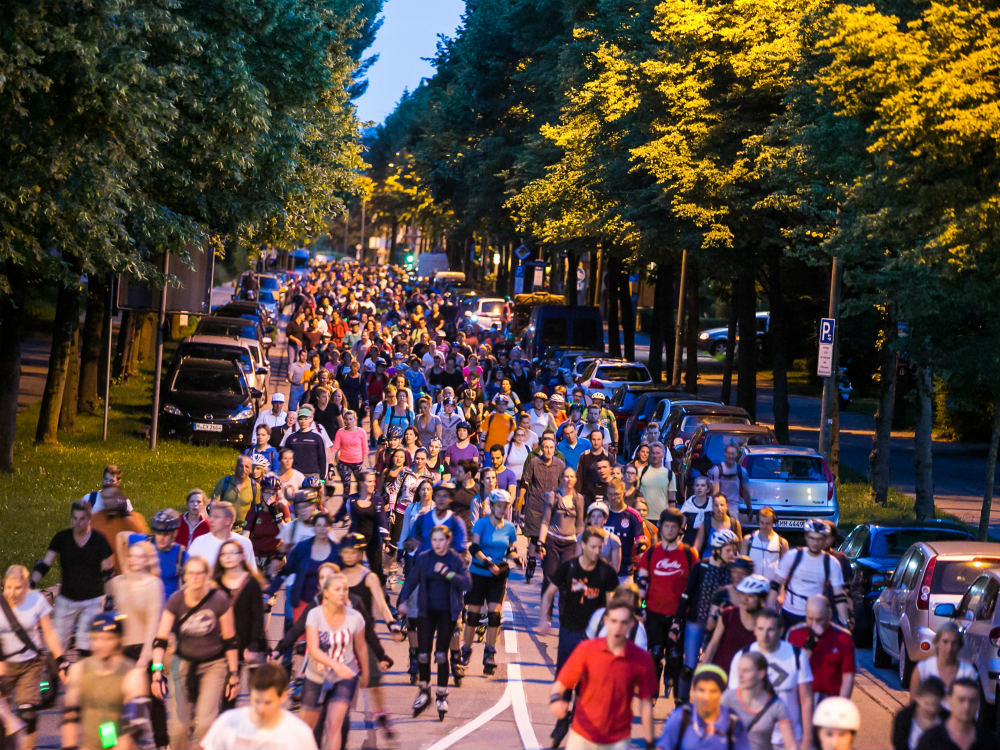
Green City e.V. actions show citizens, how simple it is to embrace climate protection in everyday life. ‘Upcycle Your Style’ is a clothes exchange party to reduce consumption and waste. In ‘Bus with feet’ kids meet every morning at an imaginary bus stop and walk accompanied by one adult to school. ‘City2Share’ is a research project on mobility in a Munich neighbourhood in partnership with BMW and the city administration. In ‘Experience Munich’ locals show newcomers the best way to use public transportation in the city. The list of initiatives goes on.
As part of their effort to rewild Munich, Green City e.V. supports citizens and shop owners, who want to revive desolate green areas or small spaces around trees in front of their houses or stores. They convert them into small lush gardens in the neighbourhood. An idea very similar to Tamara Sancho’s micro-gardens in Barcelona.
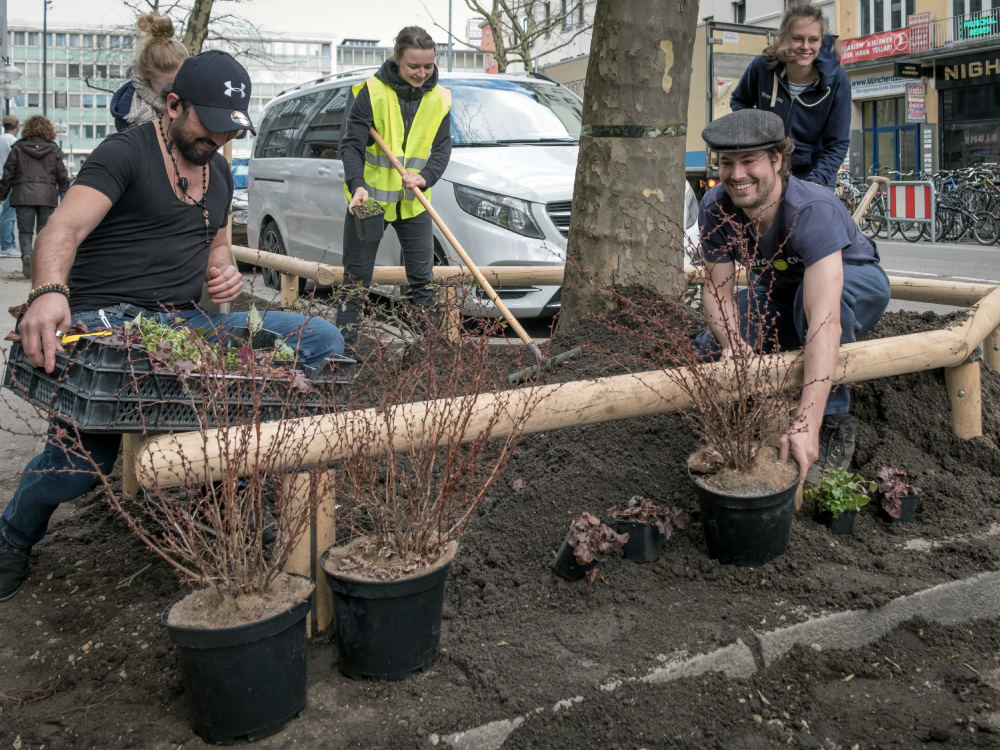
Green City e.V. has also supported two urban gardening projects in Munich, a project called ‘The eatable city’.
Citizens are changing behaviours for climate protection
From the beginning the founders of Green City e.V. understood that it is citizen engagement that makes all the difference. Climate action is now reaping the benefits of this spirit. Firstly, because environmental-conscious citizens in Munich have been already changing lifestyle behaviours and are more willing to act now for climate protection. And secondly, because boosting citizen participation positively exercises pressure on city officials to act as well.
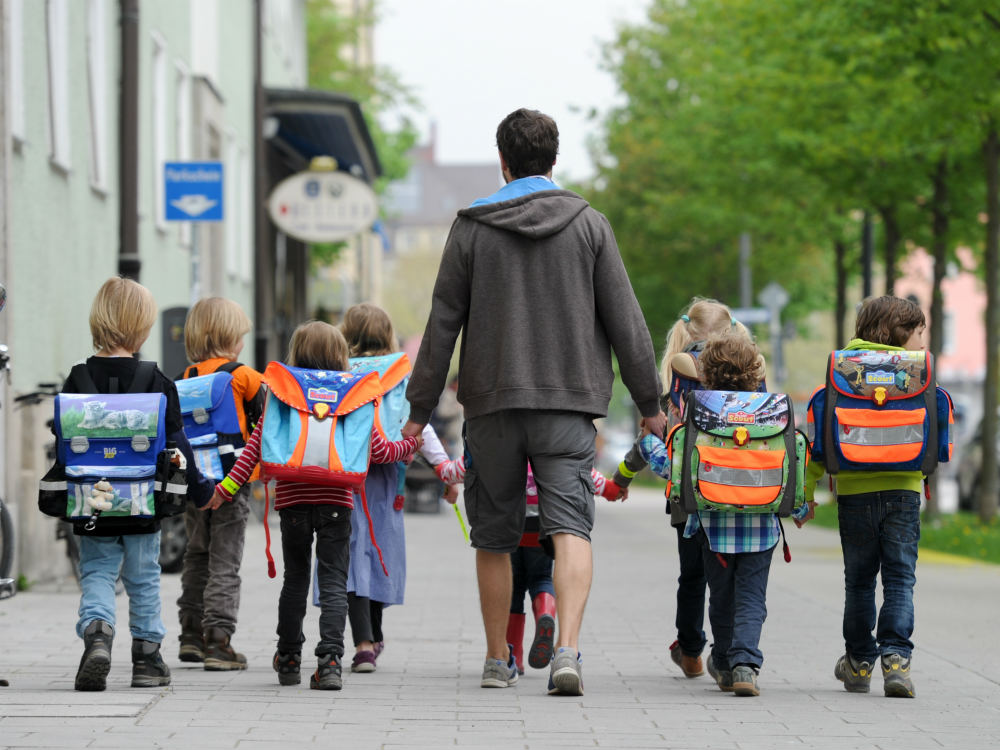
As a result, Green City has succeeded in partnering with the city administration in many of their initiatives. But they remain nonpartisan. Their commitment is limited to ensure a regular dialogue with the decision-makers of the city. Green City e.V. is aware that they represent the voice of many citizens in Munich, who want a green city to ensure climate protection.
Cities have the power to change course by issuing policies and championing the responsible use of energy, alternative forms of public transportation, sustainable urban design and city planning. But it has to go hand in hand with citizens.
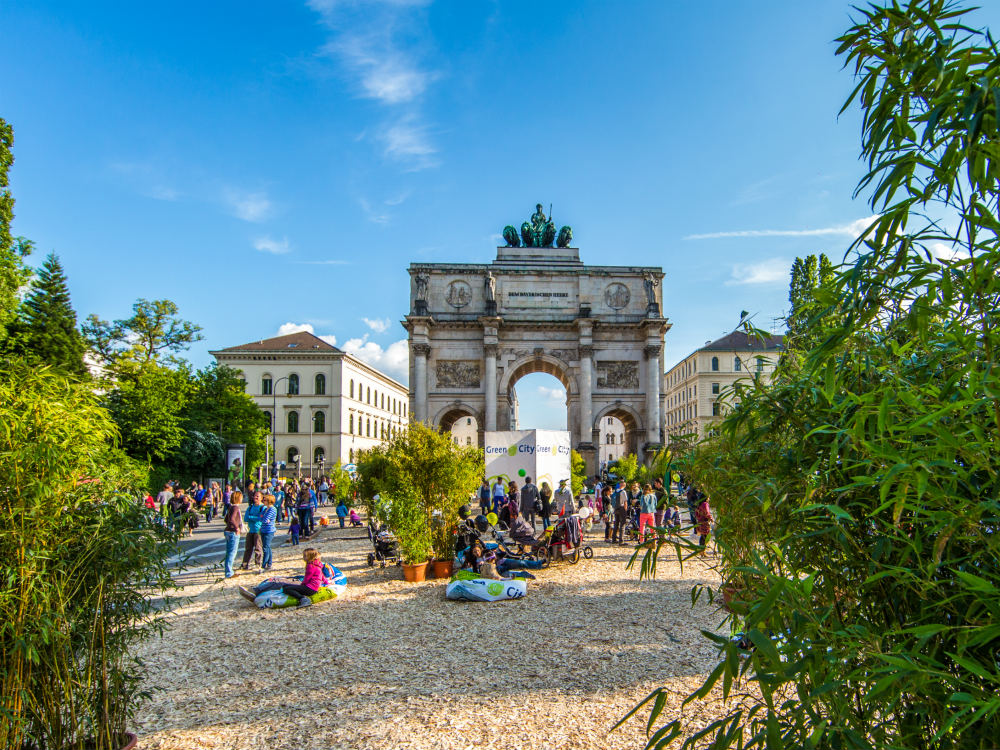
It is always a vision that will drive change. In that sense, it is good news that cities around the world have drafted ambitious plans rather than only recognizing the benefits of protecting the environment in urban areas. The mass greening of our cities is not a utopia. Without such a vision, green cities would not change to protect the climate.
But city governments have to stress the importance of citizen engagement with specific actions to make their visions come true, as Green City e.V. is doing. Their approach has contributed to develop a green city state of mind in citizens in Munich.
At a time when cities have been urged to go green for climate protection, Munich is already half the way there. Ending climate change begins with citizens.
